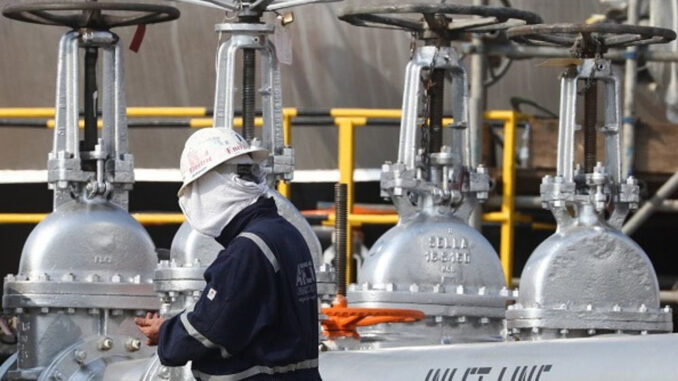
The unusually public dispute that tested the unity of the cartel was resolved in a classic compromise — with Riyadh meeting Abu Dhabi halfway in its demand for a more generous output limit.
“Consensus building is an art,” Saudi Energy Minister Prince Abdulaziz bin Salman told reporters after the meeting. The deal is evidence of the strong bonds between members and shows “OPEC+ is here to stay.”
The agreement means the cartel will boost output by 400,000 barrels a day each month from August, continuing until all of its halted output has been revived. The deal will also give the UAE and several other countries higher baselines against which their production cuts are measured, starting in May 2022, according to a statement from the group.
The UAE’s level was increased to 3.5 million barrels day, below the 3.8 million it initially demanded but above the previous baseline of 3.17 million.
Supply Squeeze
The truce between the two long-time allies will ease a looming supply squeeze and reduce the risk of an inflationary oil price spike. It also puts an end to a diplomatic spat that unnerved traders, as the fight between the two long-time allies risked unraveling the broader accord between the Organization of Petroleum Exporting Countries and its allies that has underpinned the recovery in crude prices.
The multifaceted agreement means several things for the oil market. It gives consumers a clearer view of how quickly OPEC+ will restore the 5.8 million barrels a day of production it’s still withholding, since making deep cuts last year in the initial stages of the pandemic.
The baseline adjustments won’t alter the pace of the 400,000 barrel-a-day monthly output increases when they take effect next year, Prince Abdulaziz said. The group will continue to meet every month, including a review of the market in December, and could adjust the schedule if required, he said.
“The monthly meetings and the December review tell you that that is all amendable,” said Bill Farren-Price, a director at research firm Enverus. “So oil bulls should read this as positive — OPEC+ supply management continues.”
Internal Tensions
The accord also resolves longstanding grievances that caused tensions within OPEC+ since late 2020. The UAE blocked an agreement earlier this month, arguing that the way its quota was calculated was unfair because it didn’t reflect a costly expansion in the country’s industry.
The spat was particularly bitter, and the tensions go beyond oil diplomacy amid growing economic rivalry between Abu Dhabi and Riyadh. Ministers of each country used media interviews to make their case, stirring memories of the 2020 Saudi-Russia price war, and also past threats from the UAE to leave the cartel.
With a successful deal in the bag, both countries emphasized the strength and friendliness of their relationship.
“The UAE is committed to this group and will always work with it,” Energy Minister Suhail Al-Mazrouei told reporters after the meeting. He thanked Saudi Arabia and Russia for keeping OPEC+ together and fostering a constructive dialog that enabled a deal.
— With assistance by Golnar Motevalli



